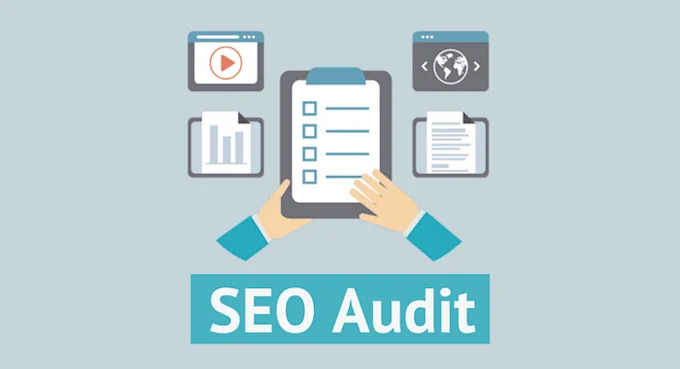Introduction
If you’re looking to improve your website’s visibility and performance on search engines, conducting an SEO audit is a crucial first step. Many beginners often wonder, what is an SEO audit and why is it so important? In this guide, we’ll cover everything you need to know about SEO audits — from the definition and importance to a complete SEO audit checklist that you can use today.
What Is an SEO Audit?
Definition of SEO Audit
So, what is SEO audit exactly?
An SEO audit is a comprehensive analysis of a website to evaluate how well it is optimized for search engines. It identifies technical issues, content gaps, keyword opportunities, and other factors that affect organic search rankings.
In simple terms, when someone asks what is an SEO audit, it refers to the process of checking a website’s SEO health.
Why Is an SEO Audit Important?
An SEO audit plays a vital role in the success of any digital marketing strategy. Here’s why:
- Identifies Technical Issues: Broken links, slow-loading pages, and crawl errors can negatively impact rankings.
- Improves User Experience: By fixing design and usability issues, you improve engagement and conversions.
- Boosts Search Engine Visibility: A properly optimized site ranks higher on Google and other search engines.
- Keeps You Updated with SEO Trends: SEO algorithms change frequently. Regular audits help you adapt.
- Enhances Content Strategy: Identify underperforming content and opportunities to add relevant keywords.
Complete SEO Audit Checklist (2025 Edition)
A successful SEO audit involves multiple steps. Here’s a complete SEO audit checklist every beginner should follow:
1. Technical SEO Audit
Check Website Speed
Use tools like Google PageSpeed Insights or GTmetrix. Aim for a load time under 3 seconds.
Mobile-Friendliness
Google uses mobile-first indexing. Test your site with Google’s Mobile-Friendly Test.
Crawlability & Indexing
Use tools like Screaming Frog or SEMrush to ensure all your important pages are being crawled and indexed.
Fix Broken Links
Broken links harm SEO and user experience. Use tools like Ahrefs or Broken Link Checker.
Secure Your Website (HTTPS)
Ensure your site uses an SSL certificate (HTTPS), which is a ranking factor.
2. On-Page SEO Audit
Check Title Tags and Meta Descriptions
Ensure each page has unique and keyword-rich titles and meta descriptions.
Optimize Header Tags (H1, H2, H3)
Use a clear structure and include primary keywords naturally.
Keyword Optimization
Verify that your target keywords are present but not stuffed. Use related keywords and semantic terms.
Image Optimization
Compress images and use alt text with descriptive keywords.
Internal Linking
Use relevant anchor texts to link related pages internally to improve crawlability and user experience.
3. Content Audit
Content Quality and Relevance
Ensure content is original, well-written, and matches user intent.
Check for Duplicate Content
Use Copyscape or Siteliner to find and fix duplicate content issues.
Keyword Cannibalization
Avoid multiple pages competing for the same keyword. Consolidate content if necessary.
4. Off-Page SEO Audit
Backlink Profile Analysis
Use tools like Ahrefs, SEMrush, or Moz to assess your backlinks. Remove toxic links and build high-quality ones.
Check Domain Authority
Evaluate your site’s authority compared to competitors using Moz DA or Ahrefs DR.
5. User Experience (UX) Audit
Check Core Web Vitals
Evaluate metrics like LCP (Largest Contentful Paint), FID (First Input Delay), and CLS (Cumulative Layout Shift).
Improve Navigation
Ensure your site structure is simple, logical, and easy to navigate.
6. Local SEO Audit (If Applicable)
Google Business Profile
Ensure your Google Business Profile is up-to-date and optimized.
NAP Consistency
Your Name, Address, and Phone number should be consistent across all listings.
How Often Should You Do an SEO Audit?
Regular SEO audits are essential for maintaining and improving your search rankings. Here’s a basic timeline:
- Technical Audits: Every 3-6 months
- Content Audits: Every 6-12 months
- Backlink Audits: Quarterly
- Full SEO Audit: At least once a year
Best Tools for Performing an SEO Audit
Here are some beginner-friendly SEO tools you can use:
- Google Search Console
- Google Analytics
- Screaming Frog
- Ahrefs
- SEMrush
- Ubersuggest
- Moz Pro
Conclusion
To sum up, if you’re serious about growing your online presence, understanding what is SEO audit and using a proven SEO audit checklist is crucial. A proper SEO audit uncovers hidden issues, improves user experience, and helps you stay ahead in the competitive digital landscape.
Whether you’re just starting out or looking to scale your business, performing regular SEO audits ensures your website is healthy, optimized, and ready to rank.
Key Takeaways
- What is an SEO audit? It’s a process to evaluate and improve your website’s SEO performance.
- Why is it important? It helps identify and fix issues that can harm your rankings and visibility.
- What should you do? Follow the detailed SEO audit checklist to stay on top of your SEO game.
Would you like me to convert this article into a downloadable PDF, Word doc, or upload it to your CMS in formatted HTML?
Digital Marketing 101: What It Is and How It Can Grow Your Business
The Future of Digital Marketing: Trends to Watch
Top 10 Digital Marketing Strategies Every Business Should Know
How Digital Marketing is Revolutionizing Business Growth
What Is SEO in Digital Marketing? A Complete Beginner’s Guide
How SEO Works in Digital Marketing: Strategies That Drive Results
What Is On-Page SEO in Digital Marketing? Key Techniques Explained
what is ppc in digital marketing




